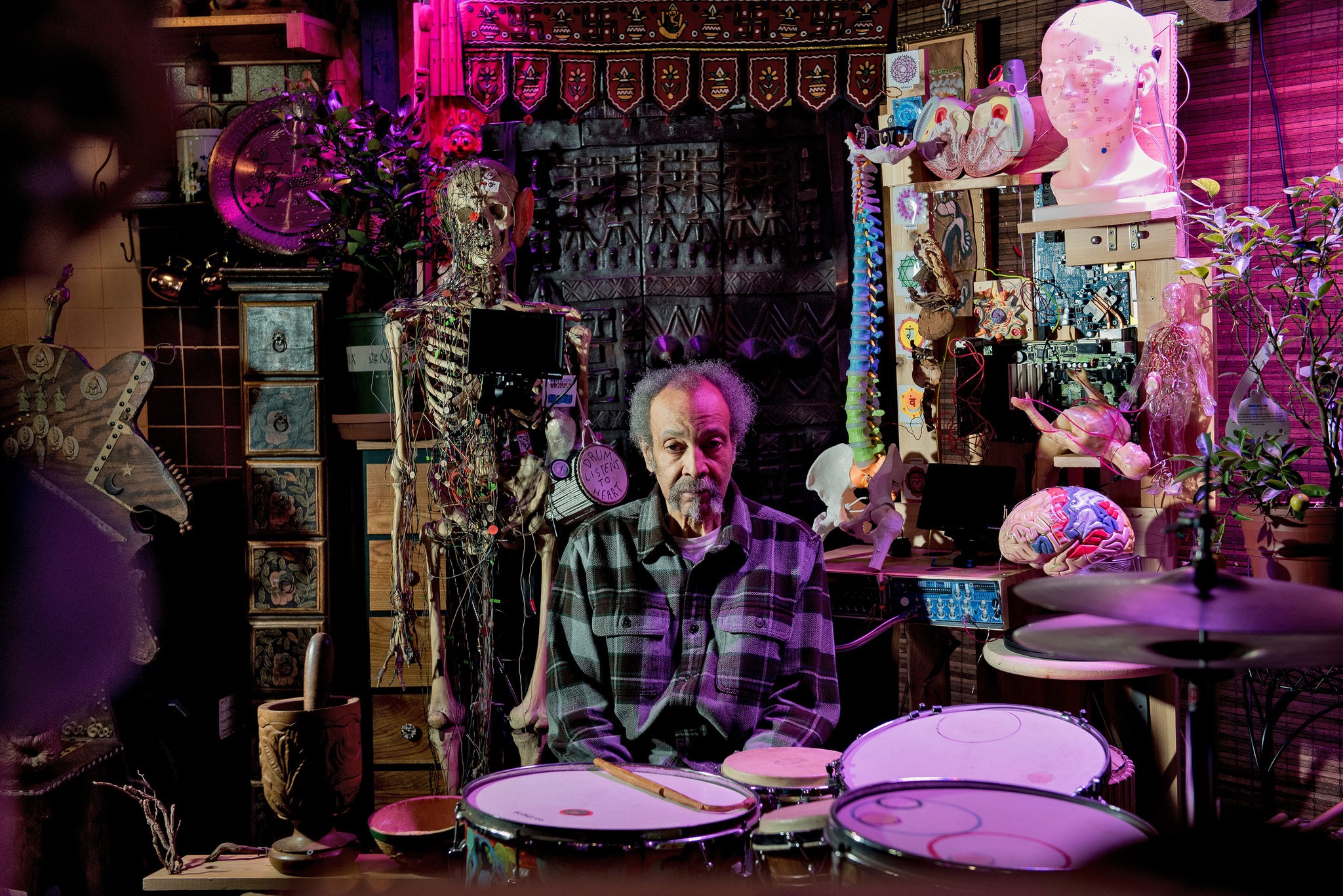This Spring, the New York Times profiled Jazz drummer and autodidact polymath Milford Graves. A skilled player he has lived his life under the radar of even the most devoted Jazz wonkette. Rather than pursuing a career he’s sought after knowledge in a wide range of fields and found the unlikely overlaps in theory and practice. Some of his perspectives will likely resonate with ceremonial magicians. Here’s an excerpt:
“Mr. Graves does this research in the semi-suburban Queens home where he and his wife, Lois, have lived since 1970. (He grew up nearby, then inherited the house from his grandmother.) Years ago, he festooned its exterior with a creeping, Gaudíesque mosaic of stones and colored glass. In the comfortably cluttered basement, books on biology, Kundalini yoga and 20th-century music perch next to West African drums and Indian tablas.
“’I guess I’ve always been my own person,’ Mr. Graves said, sitting in baggy sweatpants and a flannel jacket by a bank of six computer monitors. ‘I didn’t have no teacher, and that was great, because I was allowed to figure it out without anybody telling me to do it this way or that way. That came later, when I said, Oh, that’s the conventional way.’
He grew up playing timbales in Latin jazz and mambo bands, where the rhythmic complexity is greater and more gravity-defying than in standard jazz drumming. Mr. Graves decided to move to the kit after hearing
Elvin Jones with John Coltrane at a club — not to imitate what he’d heard, but to transcend it, add more range. ‘I said, “He’s cool, but I hear something else, man,”’ Mr. Graves said. ‘I heard what he wasn’t doing.’”
And doesn’t that last line nail the experience of living the magical life?

